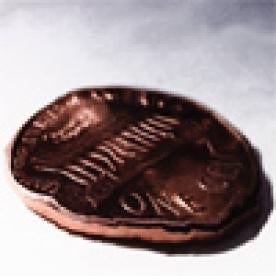Congress enacted § 1328(f) of the Bankruptcy Code when its passed BAPCPA. This section prohibits the granting of a chapter 13 discharge if the debtor received a chapter 7 discharge within four years prior to the commencement of his chapter 13 case. The Ninth Circuit in In the Matter of Blendheim, 803 F.3d 477 (9th Cir. 2015) held a chapter 20 debtor may in his chapter 13 case avoid a lien under § 506(d) even if § 1328(f) precludes him from receiving a discharge.
The creditor in Blendheim was HSBC Bank, which held a deed of trust lien on the debtors’ home. The debtors filed a chapter 7 case and received a discharge. Soon thereafter, they filed a chapter 13 case, mainly to restructure debts relating to their primary residence. HSBC timely filed a secured proof of claim based on its deed of trust against the debtors’ residence. The debtors objected to the claim, substantively objecting on the grounds that the note which formed the basis for the claim bore a forged signature. For some unknown reason, HSBC never responded to the debtors’ objection, and the bankruptcy court entered an order disallowing HSBC’s secured claim. In fact, after receiving notice that its secured claim had been disallowed, HSBC withdrew its proof of claim and requested the court to no longer send it electronic notifications in the case.
Thereafter, the debtors filed an adversary proceeding against HSBC seeking to void HSBC’s lien under § 506(d) which provides “to the extent that a lien secures a claim against the debtor that is not an allowed secured claim, such lien is void.” The debtors contended they were entitled to avoid the lien because the plain language of the statute says a lien securing a debt which is not an allowed secured claim is void. HSBC defended, asserting the debtors were not entitled to avoid the bank’s lien because the debtors were precluded from receiving a discharge by § 1328(f), which provides that a debtor may not receive chapter 13 discharge if he has received a chapter 7 discharge within four years prior to the commencement of his chapter 13 case.
The Ninth Circuit agreed the debtors could avoid HSBC’s liens even though they could not receive a chapter 13 discharge. First, the court concluded the plain language of § 506(d) entitled the debtors to avoid HSBC’s lien. Because this section provides that a lien is void if it secured a debt which is not an allowed secured claim, the court concluded that Congress’ intent was manifest, and held the purpose of § 506(d) was to nullify a creditor’s legal rights in a debtor’s property if the creditor’s claim is disallowed. The court stated its belief that the Supreme Court’s decision in Dewsnup v. Timm, 502 U.S. 410 (1992) confirmed its interpretation. In Dewsnup, the debtors argued that the creditor’s claim was not an allowed secured claim because it was undersecured, and therefore they could avoid it under § 506(d). The Supreme Court rejected this argument, holding “§ 506(d) did not void the lien on his property because the creditor’s claim has been fully ‘allowed.’”
HSBC argued that such a conclusion would be inconsistent with decisions from the Eighth,[1] Fourth[2] and Seventh[3] Circuits, all of which held that avoiding liens for claims which were disallowed because they were untimely filed violated the long-standing principle that valid liens pass through bankruptcy unaffected. Viewing these decisions as holding that filing an untimely claim is akin to not filing a claim at all, the court determined the reasoning of these cases to be inapplicable since HSBC’s claim was disallowed on the merits. The court also noted that the Eleventh[4] and Fourth[5] Circuits have held that a chapter 13 debtor who cannot receive a discharge because of § 1328(f) may still void liens under § 506(d).
Finally, the court rejected HSBC’s argument that allowing avoidance of its lien in these circumstances would effectively grant the debtors on a de facto basis, the discharge to which they were not entitled. The court stated this argument ignored the difference between in personam and in rem liability. By enacting § 1328(f), Congress affected only the debtor’s in personam liability: “We take Congress at its word when it said in § 1328(f) that Chapter 20 debtors are ineligible for a discharge, and only a discharge.” The court further noted there is no language in the Bankruptcy Code which prevents Chapter 20 debtors from receiving the other benefits chapter 13 has to offer, and had Congress intended to prevent these debtors from avoiding liens, it would have included specific language when it enacted BAPCPA.
[1] In re Shelton, 735 F.3d 747 (8th Cir. 2013)
[2] In re Hamlett, 322 F.3d 342 (4th Cir. 2003)
[3] In re Tarnow, 749 F.2d 464 (7th Cir. 1984)
[4] In re Scantling, 754 F.3d 1323 (11th Cir. 2014)
[5] In re Davis, 716 F.3d 331 (4th Cir. 2013)






 i
i


